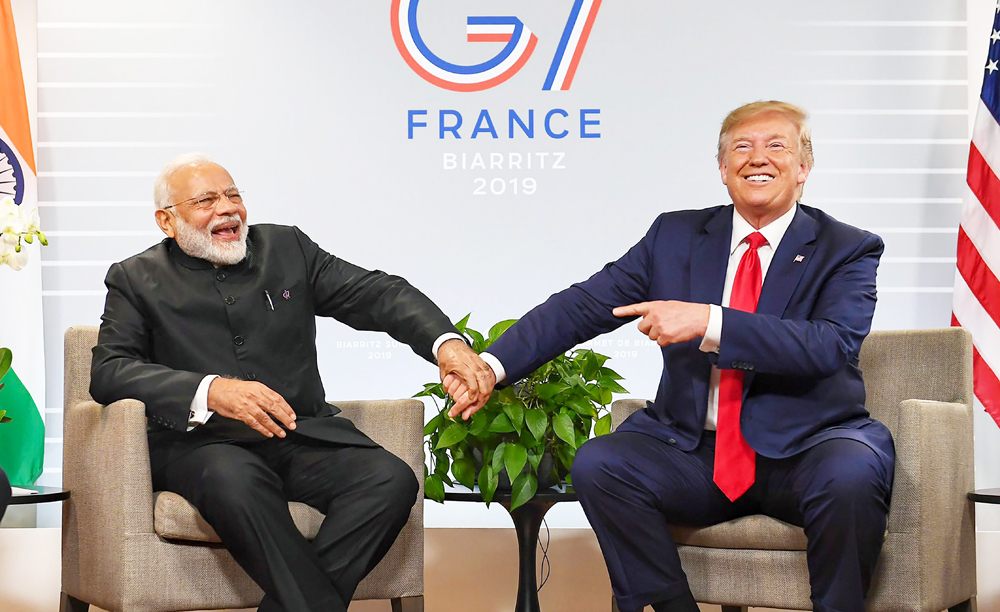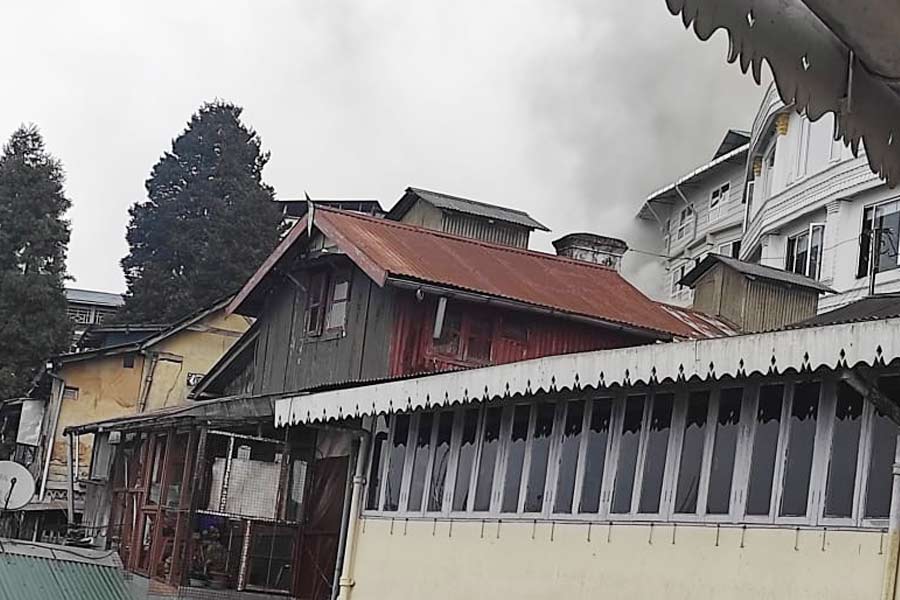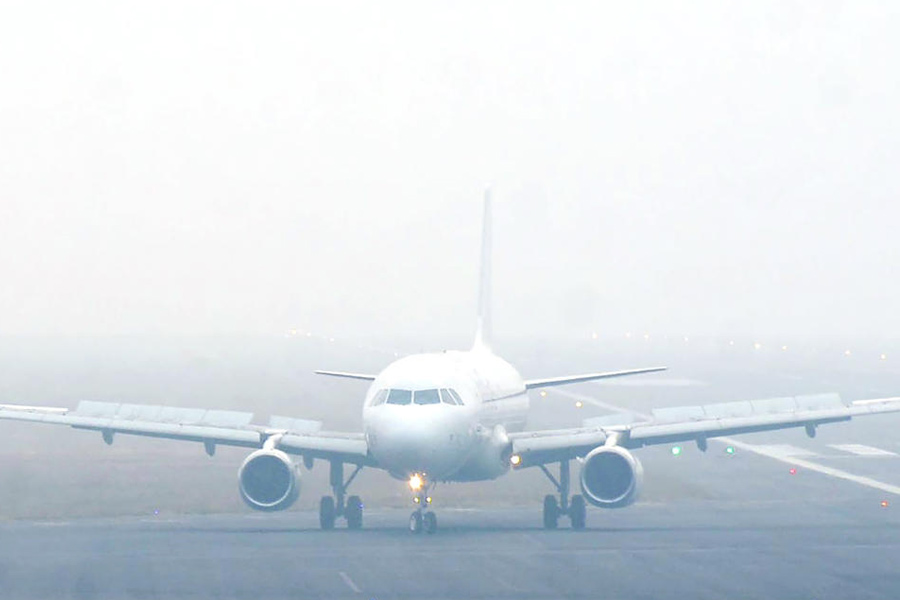US President Donald Trump on Monday appeared to step back once again from his efforts at mediating on Kashmir; revealing in France that “Prime Minister (Narendra Modi) really feels he has it under control’’ and that India and Pakistan would be able to resolve the dispute by themselves.
Soon after India succeeded in getting Trump to accept that Kashmir was a bilateral issue, Pakistan Prime Minister Imran Khan ratcheted up the rhetoric, raising the spectre of a war between the two nuclear weapon countries.
“If the (Kashmir) conflict moves towards war, then remember both nations have nuclear weapons and no one is a winner in a nuclear war,” Imran said in a pre-announced, televised address to the nation on the situation along Pakistan’s eastern border.
“It will have global ramifications. The superpowers of the world have a huge responsibility.… Whether they support us or not, Pakistan will do everything possible.”
Trump’s comments came as he interacted with the media in Biarritz on the sidelines of the G7 meeting, with Modi by his side after their delegation-level bilateral.
Asked about Kashmir, he said: “We spoke last night about Kashmir. Prime Minister really feels he has it under control. They speak with Pakistan and I’m sure that they will be able to do something that will be very good.’’
To the question whether his offer to mediate on Kashmir was off the table, Trump said: “I think they can do it themselves; they have been doing it for a long time.’’
Earlier, Modi’s response to a question on Kashmir was: “There are several bilateral issues between India and Pakistan. I had told Prime Minister Imran Khan after his election that we need to battle poverty, illiteracy and disease; that we should jointly fight these ills our countries face and work together for the people.’’
Pressed further, he said: “All issues between India and Pakistan are bilateral. India does not want to trouble any other country with them. I am sure that India and Pakistan — which were one country before 1947 — can work together and resolve issues through discussion.’’
After claiming Modi had asked him in Osaka, Japan, whether he would like to mediate or arbitrate on the Kashmir dispute, Trump has over the past month shifted positions more than once on the possibility of Washington mediating the issue.
Although India had contested Trump’s claim, maintaining such a conversation never took place, the US President repeatedly offered to mediate over the past month. The latest offer came on Wednesday when he said, after separate phone conversations with both Premiers, that he wanted “to do the best I can to mediate’’ on Kashmir.
Briefing journalists before leaving for home, foreign secretary Vijay Gokhale said there was no discussion with the US on Monday on Kashmir.
He refused to elaborate on Kashmir beyond what Modi and Trump had said at the news conference. Monday’s meeting, he said, had principally focused on issues of trade and energy.
Gokhale maintained that Kashmir had not come up during Modi’s bilateral with British Prime Minister Boris Johnson, either, but said UN Secretary-General António Guterres had brought the subject up.
He said Modi had reaffirmed India’s stated position that the decision on Article 370 was an internal matter, and also told Guterres that India had taken no step that had any international ramifications or posed a threat to regional peace and security.
Modi said that normality was returning to Jammu and Kashmir and many of the restrictions were being eased.
He added that the government’s main concern was terrorism -– which has been going on for 30 years -– and that while certain restrictions would remain in place to ensure law and order, they would be progressively lifted.











